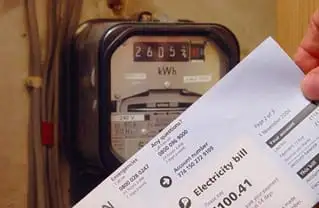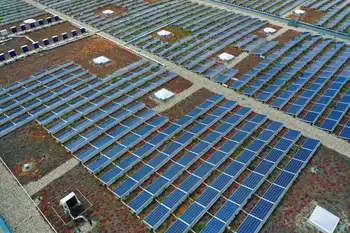Company sees big breakthrough in solar costs
By East Valley Scottsdale Tribune
Arc Flash Training CSA Z462 - Electrical Safety Essentials
Our customized live online or in‑person group training can be delivered to your staff at your location.

- Live Online
- 6 hours Instructor-led
- Group Training Available
But utility industry officials say the cost will have to go still lower before photovoltaic technology is cost-competitive with conventionally generated electricity. Solar energy will need government support and subsidies for another five to 10 years, they say.
First Solar uses thin-film technology to convert sunlight into electric current without the need for silicon, a more expensive material used in most photovoltaic cells. Also the company said it is benefitting from mass production techniques as demand soars for its modules.
In a statement, the company said it reduced its manufacturing cost for solar modules in the fourth quarter to 98 cents per watt, the first time sub-$1 production has been achieved.
The company has reduced its production costs by two-thirds in four years - from more than $3 a watt in 2004, the company said.
"This achievement marks a milestone in the solar industry's evolution toward providing truly sustainable energy solutions," said Chief Executive Mike Ahearn.
The company plans to continue to ramp up production from the current 500 megawatts to 1 gigawatt - the equivalent of an average-sized nuclear power plant - by the end of this year, he said.
Officials of Arizona utility companies said they were impressed by First Solar's achievements.
"It's exciting stuff," said Steven Gotfried, a spokesman for Arizona Public Service.
But he added that comparing the cost of First Solar's modules in a residential rooftop system with electricity supplied from a conventional fossil-fuel power plant is not straightforward. That's because the solar panels constitute only about one-third of the cost of a residential rooftop system, he said. There are other costs such as converters and wiring that have to be factored into the equation, he said.
And, of course, you have to consider that photovoltaic panels can't produce much electricity at night or on cloudy days.
On the other hand, the fuel - sunlight - is free, while conventional power plants require coal, natural gas or nuclear fuel, whose ongoing cost has to be considered.
"It's hard to compare," he said.
Market factors are also playing a major role determining the cost of solar energy, said Chico Hunter, senior engineer for Salt River Project.
Although the cost of making solar panels is declining, the demand is so great that they are selling for pretty much what the market will bear, he said.
"You may produce it for less, but that doesn't mean you sell it for less," he said.
But Hunter applauded First Solar for being so public about its production costs, saying it will put pressure on the retail and installing segments of the industry to reduce end costs to the consumer rather than jack up profits with big markups.
First Solar has been selling most of its modules in Europe, where government subsidies are generous. But the company has started doing business in California, and SRP is negotiating with the company to expand the availability of the technology in Arizona, said Lori Singleton, SRP's manager of sustainability initiatives.
In Arizona, homeowners are eligible for tax credits and utility-company rebates to reduce the cost of installing solar systems. But Singleton said solar technology may catch on faster in places like California, where the price of conventional electricity is higher than here.
First Solar's Ahearn said government subsidies and support from countries like Germany are making it possible to reduce production costs.
"Without forward-looking government programs supporting solar electricity, we would not have been able to invest in the capacity expansion which gives us the scale to bring costs down," he said.











